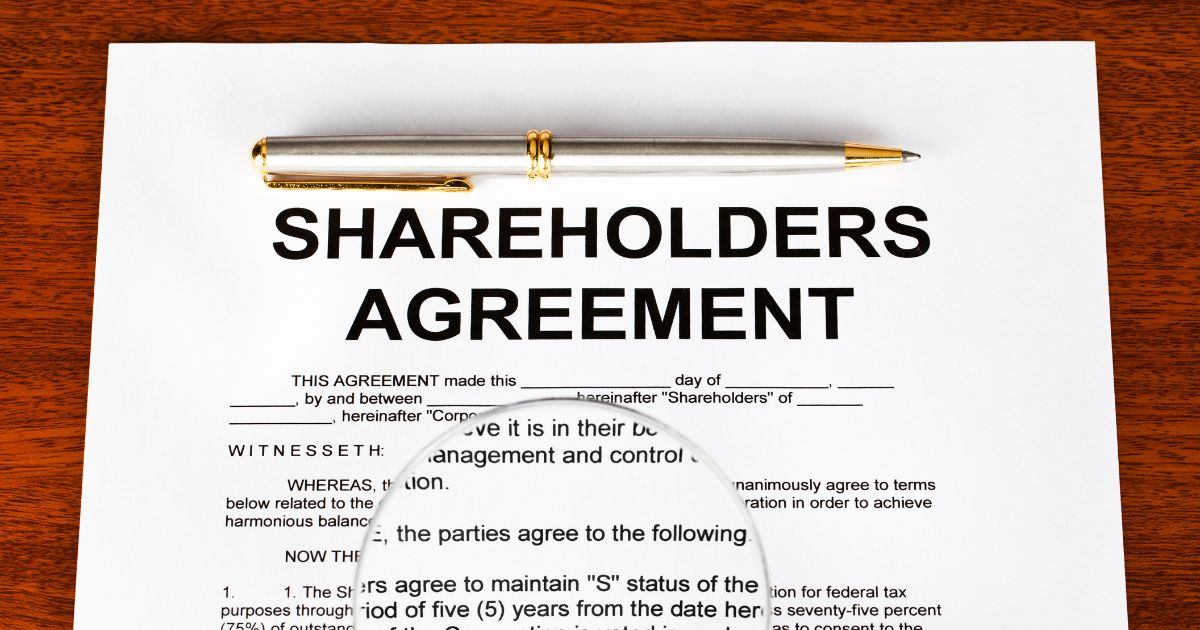The purpose of a shareholder agreement is to define the terms that govern the relationship that exists between the participants, with the important goal of protecting shareholder rights. The provisions explain each person’s obligations under corporate law as well as other responsibilities and rights. The agreement can also have rules pertaining to daily management activities, like appointing and dismissing directors and issuing shares and assets. People who sign shareholder agreements are obligated to follow these, but disputes can arise. A shareholder might breach the agreement intentionally or be unaware that they are doing something wrong.
It is not unusual for shareholders to end up in court when alleged breaches occur, but the problems can be resolved through other means. There are several ways that these individuals might not fulfill their obligations:
- Making a decision without having a required majority vote.
- Breach of confidentiality.
- Breach of fiduciary duty.
- Breach of restrictive covenants.
- Failing to comply with voting requirements.
- Transferring corporation assets to a majority shareholder without getting authorization.
- Transferring or selling assets but failing to comply with other specified terms in the agreement.
A breached contract does not always lead to a court case because many of these agreements have certain clauses in place. These require shareholder disputes to be settled through alternative dispute resolution protocols. Examples include arbitration, mediation, or a combination of both (med/arb):
- For arbitration, both parties meet with a neutral third party, and that arbitrator decides on an arbitral award that can be binding or non-binding.
- With mediation, a third party might be brought in but they will not make a binding decision.
- With a med/arb, a neutral party works to help both sides negotiate an acceptable agreement or a binding decision.
Having legal representation on your side is key, particularly if a binding decision will be made. If your shareholder agreement lacks a dispute resolution clause or it cannot be enforced, there is the option of suing the shareholder for breach of contract.
Going to Court
Perhaps the most difficult part of these cases is calculating the damages to be awarded to the other shareholders. This can be determined when there is proof that the shares were devalued after the breach. Still, the losses can be hard to quantify. In general, the court will try to determine what the non-breaching shareholder’s position would have been had the breach not happened.
The court might choose to order an injunction instead of assessing damages. Sometimes, shareholders violate negative stipulations in agreements and courts order an end to the stipulation. Courts usually avoid enforcing provisions that restrain trade through the use of an injunction, however. If they do, an award for damages may follow the judgment.
Philadelphia Shareholder Dispute Attorneys at The Gold Law Firm P.C. Can Protect Your Interests if Your Agreement Has Been Breached
Shareholder agreements can be complex, and breaches can be intentional or unintentional. Whether your case needs to be mediated, arbitrated, med/arb, or heard in court, our knowledgeable Philadelphia shareholder dispute attorneys at The Gold Law Firm P.C. are prepared to protect your rights. For a free consultation, call us at 215-569-1999 or complete our online form. Located in Pennsauken, New Jersey and Philadelphia, we serve clients in South Jersey and Southeastern Pennsylvania, including Wilkes-Barre, Scranton, Northeast Philadelphia, Bucks County, Chester County, Delaware County, Lehigh County, and Montgomery County.



































